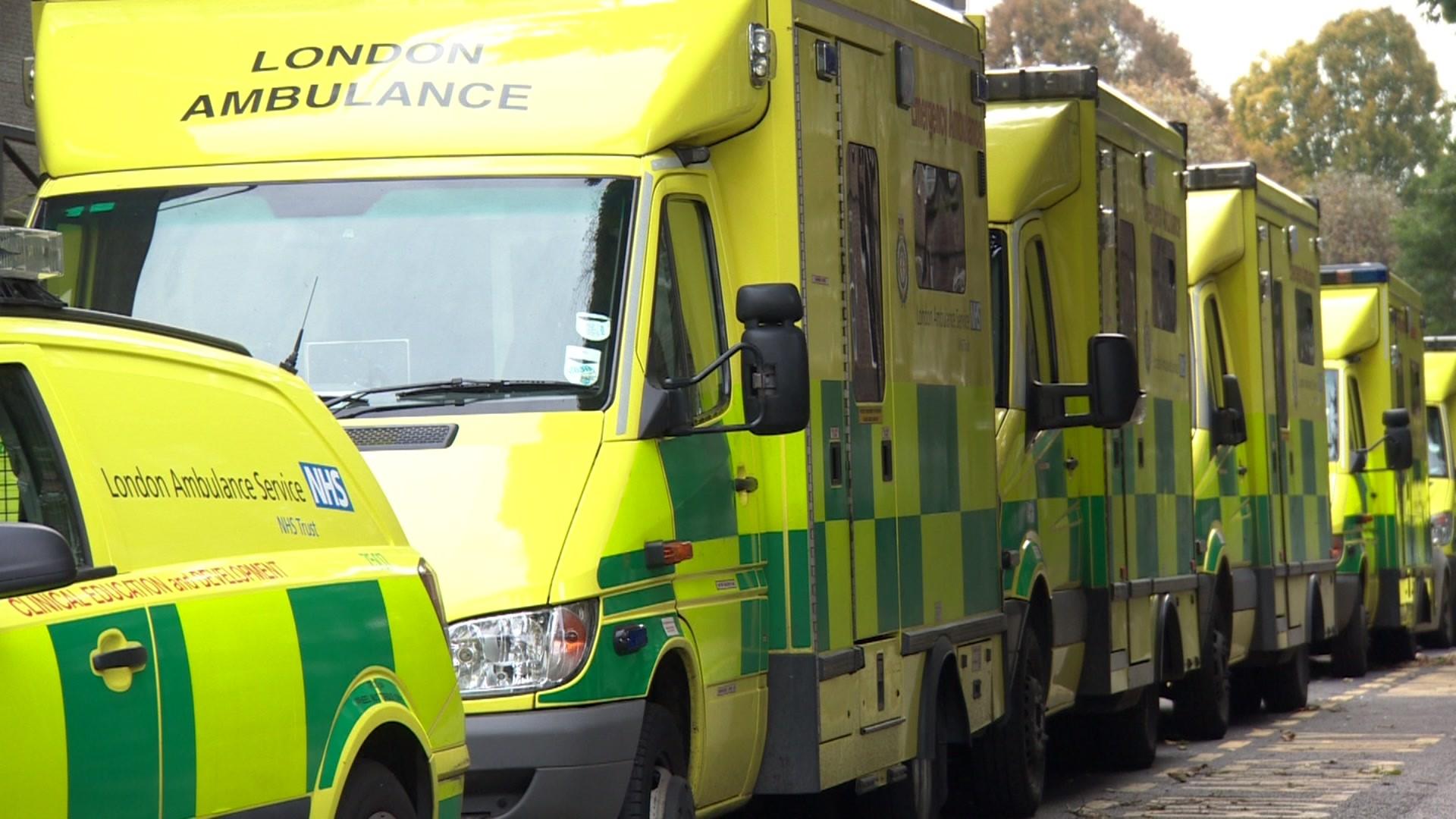Private Ambulance Service: Staff 'lacked blue light training'
- Published
'An hour's training to drive an ambulance'
Some staff at a private ambulance firm say they had only an hour's training to drive under blue lights, the Victoria Derbyshire programme has learned.
The Private Ambulance Service in Basildon, Essex, provides emergency cover for the East of England Ambulance Service.
Current staff members have also claimed some equipment in PAS ambulances is in poor condition.
PAS says its blue-light driver training has been outsourced since January 2016.
This new procedure, involving an approved training organisation used by the NHS, was introduced after those interviewed by the BBC's Victoria Derbyshire programme had joined PAS.
Dan Duke worked in patient transport for the PAS in 2013 before he was sacked.
His job sometimes involved transferring patients between hospitals.
Although this can require the use of blue emergency lights if the patient is seriously unwell, he says the company gave him a minimal amount of training to drive under emergency conditions.
"I got in the vehicle, got everything ready, started to drive out, put the blue lights on, and then it was just drive all the way down the A127… and then back to the trading estate from where they are based - an hour's training," he told the BBC's Victoria Derbyshire programme.
'Potential hazard'
Mr Duke now works for a different private ambulance company, where he says he has received comprehensive training in his job.
According to the Road Safety Act 2006, ambulance drivers are exempt from certain laws of the road - including the speed limit - providing they are properly trained or are in the process of being trained.
Dave Bradley, from the East Midland Ambulance Service NHS Trust, says it would be impossible to train someone properly to drive under blue lights in one hour.
"Everything on the road or on the side of the road is a potential hazard to us," he told the programme.
"Our driver's course is four weeks long, the first two weeks is the foundation, then the blue light driver training takes another two weeks."
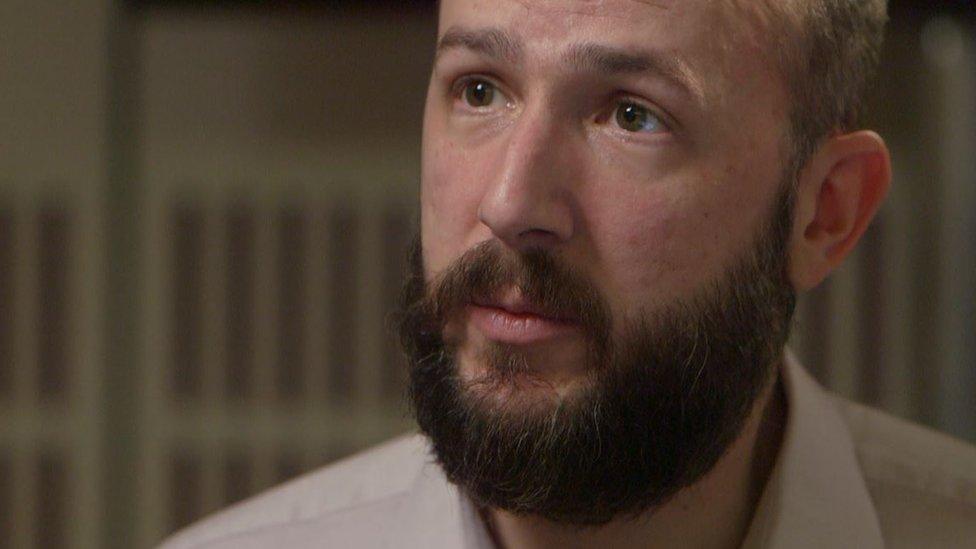
Unison's Alan Lofthouse says it is important that ambulance equipment is in good working order
Several past and present employees from PAS have told the Victoria Derbyshire programme that the vehicles are often dirty, the equipment is sometimes inadequate or broken and they are asked to work dangerously long hours.
Paul, not his real name, worked for PAS a medic before he lost his job in 2016.
He says he was not given an induction or training when he started with the company, but his principal concern was about his colleagues.
"It was quite clear that I was working with people that, not through their own fault, weren't trained," he told the programme.
"It's putting patients at risk. It's putting lives at risk. It's delaying what can be time-critical first aid."
Equipment concerns
Existing members of staff at PAS got in touch with the programme about what they said were the dirty conditions and broken equipment they had encountered when working on non-emergency patient transport shifts.
Alan Lofthouse, Unison's lead officer for ambulance workers, says any such conditions could prove hazardous to sick people being transported.
"The patient that's got to ride in the ambulance has the right for that ambulance to be clean and in a condition that's going to support their health," he told the programme.
"Patient transport services move some very ill and vulnerable people."
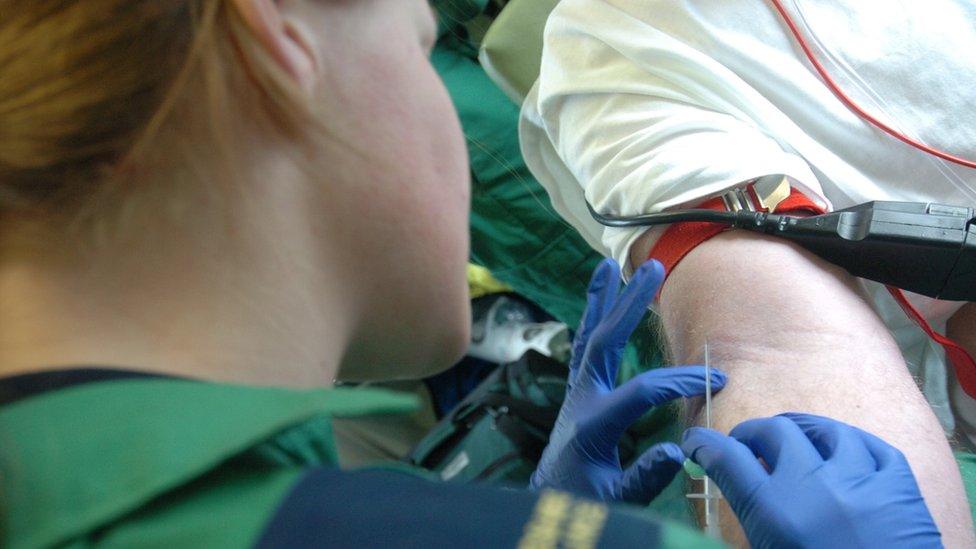
Ambulance crew members are given a high level of training
A spokesman for PAS said it offered a high level of patient care to all patients transported on its service.
He said: "All of our staff are fully trained above the required standard, and we have full policies and procedures in place to deal with any eventuality within the business.
"We are regulated and inspected by the Care Quality Commission and were last inspected in October 2016.
"Whilst we appreciate there have been some allegations made, we do not accept the nature of the allegations to be accurate."
PAS also said its staff received induction training and full training where necessary.
And staff who joined from other companies had to complete clinical skills assessments and driving assessments prior to being offered employment at PAS.
"It is the responsibility of all staff to ensure their vehicles are kept to the highest standard of cleanliness as per our infection prevention and control policy," the spokesman added.
The East of England Ambulance Service says it needs to use private ambulance companies to meet demand, which are regulated by the CQC and are internally vetted.
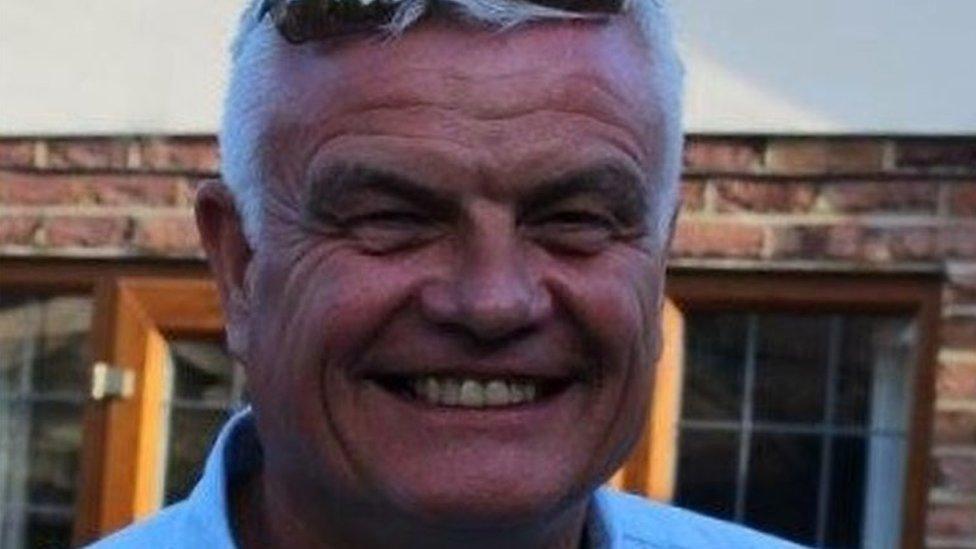
Gary Page died after being told by PAS staff that his heart attack was indigestion
The Care Quality Commission said it had carried out an inspection at the PAS in August, following concerns raised by former PAS staff members, and had found "many of the concerns unsubstantiated".
However, it also said it had found poor standards in infection control, staff not being given enough time off between shifts and poor governance and leadership arrangements.
A further inspection had shown improvements, including an updated cleaning procedure, and an action plan for further improvements, it added.
In February last year, Gary Page, 54, died at home in Laindon, Essex, hours after being seen by a PAS crew working for the East of England Ambulance Service.
He had had a heart attack but was told he had a pulled muscle or indigestion.
A coroner at his inquest in September said he had been the victim of serious failings.
Following the inquest, East of England Ambulance Service said a review had taken place and training and communication was being improved.
In a statement at the time, James Barnes, managing director of PAS, said the company had been "working closely with East of England Ambulance Service to ensure we have fully followed the recommendations within their investigation report".
The Victoria Derbyshire programme is broadcast on weekdays between 09:00 and 11:00 on BBC Two and the BBC News channel.
- Published4 January 2017
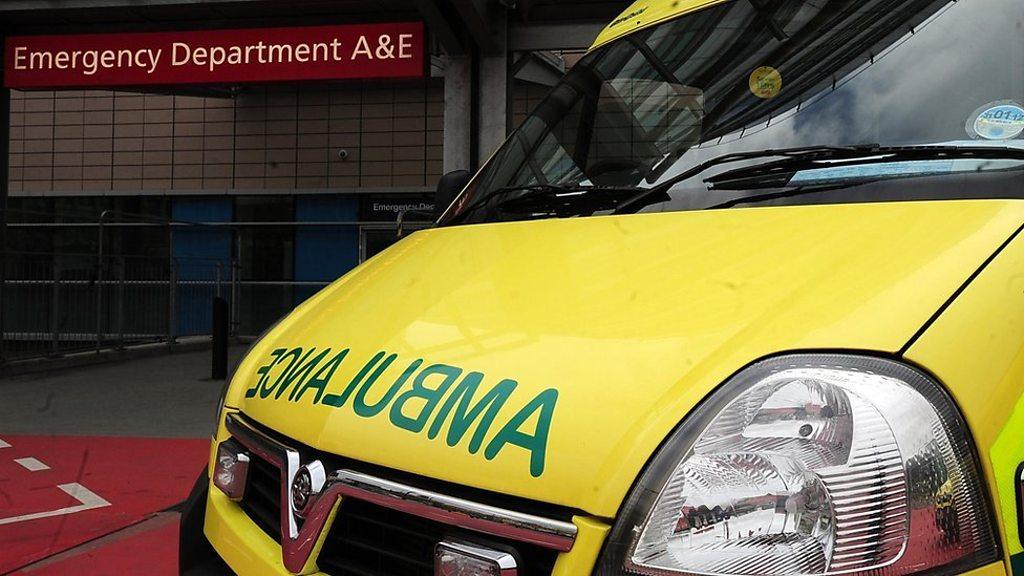
- Published6 October 2016

- Published26 May 2016
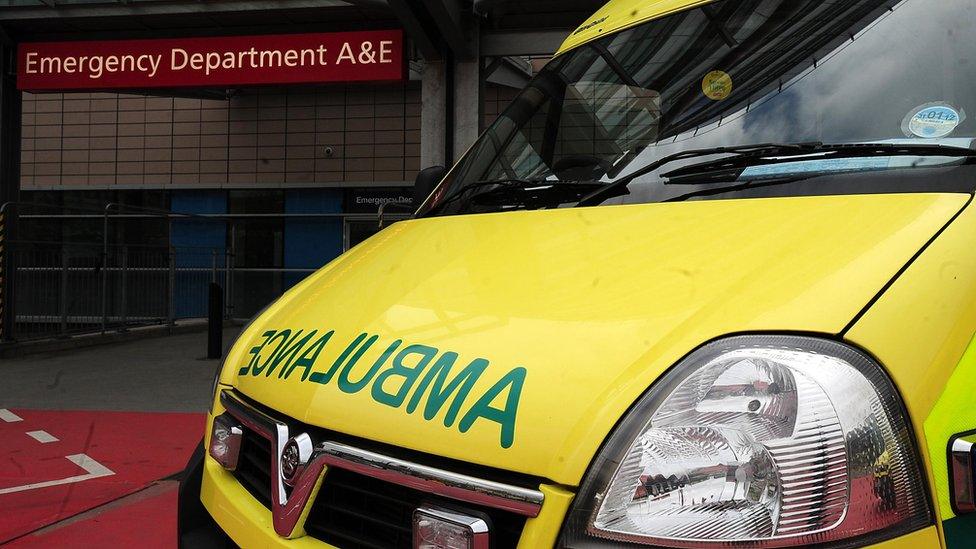
- Published13 August 2015
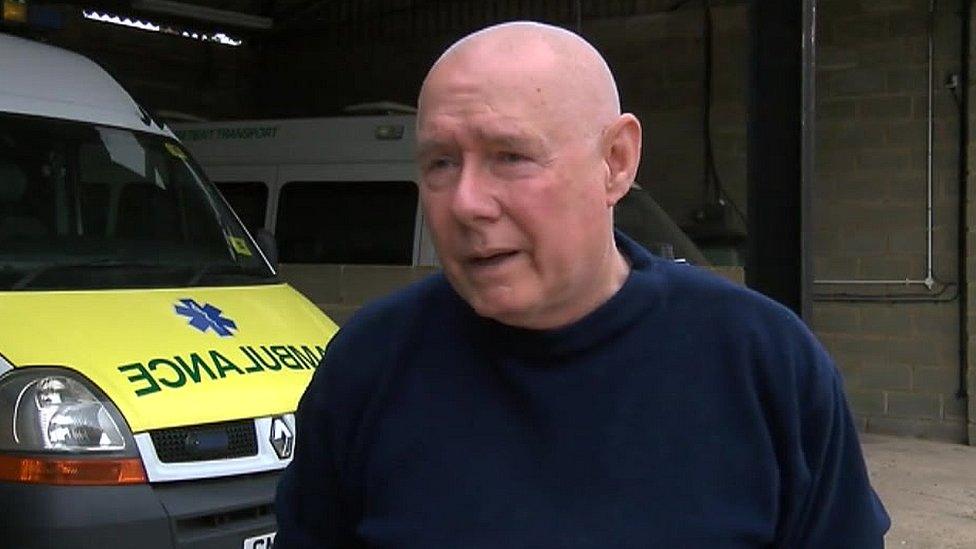
- Published22 October 2014
